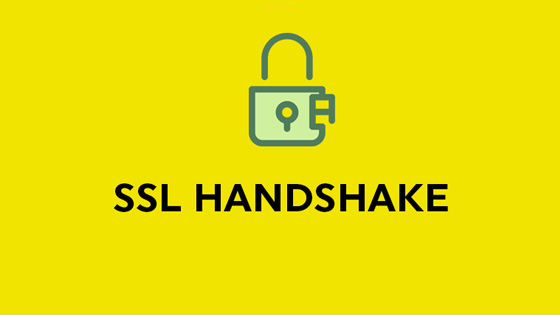
SSL Handshake: What is a SSL Handshake & How Does It Work?

By Aslam Saah
Table of Contents
Before looking into everything about what is SSL handshake, let’s get to know about the web.
The World Wide Web domain
In the World Wide Web domain, where at one end there is a pool of millions of websites giving valuable and useful information or service to all the users globally, on the other end there are malicious users in forms of hackers and attackers in abundance, trying all the ways and means to steal any of the website data or even destroy it.
Whether it be business, government sector, healthcare or banking, none of the sector is safe and secure until its data is thoroughly encrypted.
This encryption mechanism is usually provided by SSL which is a digital certificate. Let’s learn more.

Meaning of SSL
SSL (Secure Sockets Layer) is technically a security protocol which provides security for all the communication and transaction going on between the web browser and web server across the online network by the means of encrypting the data.
In 2018, Google enforced that all the websites must be https secure by owning an SSL.
SSL Certificate was introduced for the websites to carry out all the communication in an encrypted way so as to safeguard the user’s private and confidential data and prevent it from getting misinterpreted and hacked.
Websites not having an SSL certificate are denoted as ‘non secure’ and even can get penalized from Google. On the contrary, secured sites have a green colour padlock appended in front of the website URL.
Internet users are very well aware of this security parameter, thus know the importance of SSL and avoid accessing any site without https.
You can get free SSL certificate Lets Encrypt from SeekaHost if you have a web hosting package or purchase an advanced SSL Certificate according to your website’s needs.

What is an SSL Handshake?
When a user opens a website that is SSL enabled, a secure and encrypted connection is automatically established between the user’s browser(client) and the concerned website(server) and this is referred to as SSL handshake. Thereafter any communication and transaction taking place between the client and the server are highly encrypted and secure.
Depending upon your website’s need and business criticality there are different types of SSL certificates available for purchase.
-
Domain Validation – DV SSL
Looking out to secure your personal domain or website and blogs, then you can definitely opt out for domain validation (DV) SSL certificate. Apart from getting 2048-bit encryption, it aids in improvising overall Google ranking and is hassle free in validating.
-
Organizational Validation – OV SSL
Individuals seeking certification for their businesses and accepting emails and passwords can undertake Organizational Validation certification. It does involve intense validation and verification formalities.
-
Extended Validation SSL
Now this SSL certification is quite an ideal choice for e-commerce and banking sectors. As these domains involve critical and confidential transactions on a daily basis. Albeit, purchasing this certification involves rigorous formalities and intense application work. On successful verification of one’s business, the entire website URL gets displayed in green colour.
-
Wildcard SSL
A website that have primary as well as multiple other subdomains under it can go for the Wildcard SSL. Rather than going for individual SSL certifications for every domain, Wildcards SSL is launched specially to cater to main and subdomain of a website. It ensures that the entire data traversing within these domains is thoroughly encrypted.
-
UCC/SANs SSL
Organization owning numerous domain names implement the UCC SSL certification. With the help of one SSL, the Unified Communications Certificate (UCC) secures the primary website or domain name as well as 99 SANs (Subject Alternative Names).
To underline the importance of SSL certificates, those owning a website and want to secure their hard earned data and at the same time those responsible for handling customer’s private info must make it mandatory to first of all secure it.
[Tweet “SSL Handshake: What is a SSL Handshake & How Does It Work?”]
